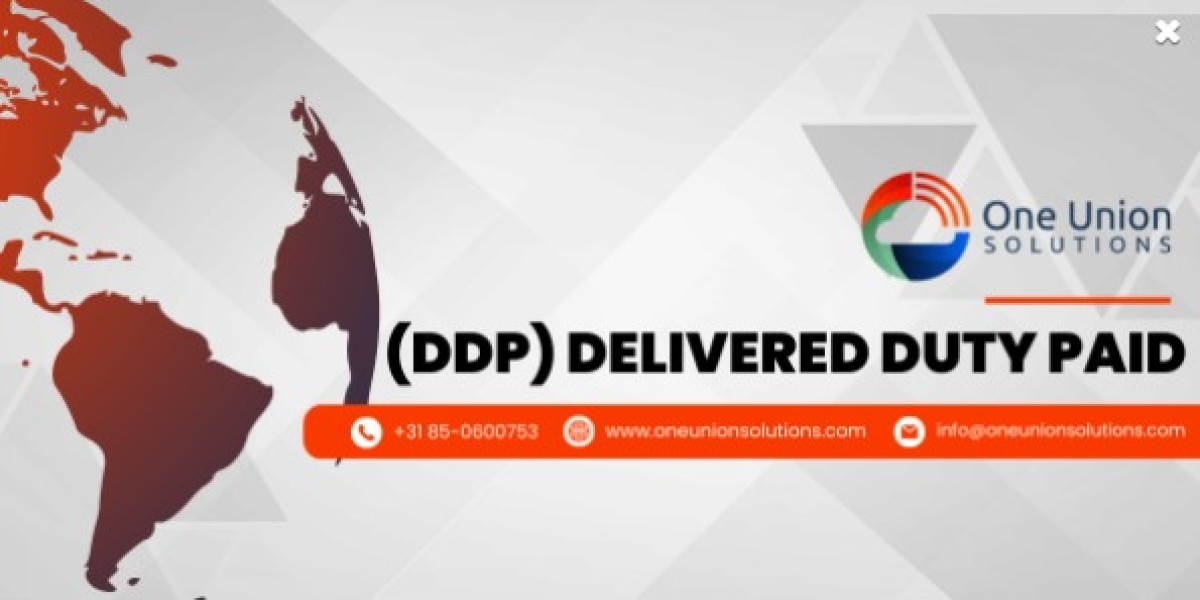In the world of international trade, clear agreements between buyers and sellers are essential to avoid confusion and ensure smooth transactions. One of the most comprehensive shipping terms is Delivered Duty Paid (DDP). This article unpacks the Delivered Duty Paid meaning, outlining the responsibilities it entails, its benefits, and its role in global trade.
What Does Delivered Duty Paid Mean?
The term Delivered Duty Paid refers to a shipping arrangement where the seller assumes full responsibility for all costs and risks associated with delivering goods to the buyer's specified location. This includes:
Freight Charges: The seller handles the transportation of goods from their location to the buyer's destination.
Import Duties and Taxes: The seller pays all customs duties, taxes, and tariffs required in the buyer’s country.
Insurance: Ensures the goods are covered against damage or loss during transit.
Customs Clearance: The seller manages both export and import customs processes.
Under DDP, the buyer’s role is limited to unloading the goods at their destination, making it a highly buyer-friendly agreement.
Key Features of Delivered Duty Paid
Seller’s Responsibilities:
Covers all costs related to transportation, customs, and taxes.
Manages risks from the point of origin until delivery to the buyer.
Ensures compliance with import regulations in the buyer's country.
Buyer’s Responsibilities:
Only responsible for receiving and unloading the goods upon delivery.
Benefits of Delivered Duty Paid
Hassle-Free for Buyers: Buyers enjoy a seamless experience with no additional costs or logistics to manage.
Transparency: The agreement eliminates hidden fees, providing a clear understanding of the total cost.
Efficient Trade: By centralizing responsibilities with the seller, DDP reduces the complexity of international transactions.
When to Use Delivered Duty Paid
Delivered Duty Paid is ideal for transactions where:
The buyer seeks a simple and predictable shipping process.
The seller has experience navigating customs and tax regulations in the buyer’s country.
Both parties aim to minimize potential disputes over costs and responsibilities.
Delivered Duty Paid vs. Other Incoterms
Understanding the differences between DDP and other shipping terms helps businesses make informed decisions:
DAP (Delivered At Place): The seller delivers goods to a specified location but does not cover import duties or taxes.
FOB (Free On Board): The seller’s responsibility ends once the goods are loaded onto the shipping vessel, leaving the buyer to handle freight and import costs.
Compared to these terms, Delivered Duty Paid provides the most comprehensive service, placing minimal responsibility on the buyer.
Challenges for Sellers
While DDP offers significant advantages for buyers, it can be demanding for sellers:
Complex Customs Processes: Sellers must ensure compliance with foreign regulations.
Higher Costs: Covering all duties, taxes, and logistics increases the seller’s expenses.
Increased Risk: The seller assumes all risks until the goods are delivered.
Conclusion
The Delivered Duty Paid meaning highlights a shipping arrangement that prioritizes buyer convenience by assigning full responsibility to the seller. This Incoterm fosters transparency, simplifies transactions, and ensures a predictable shipping process, making it an ideal choice for international trade agreements.
By understanding Delivered Duty Paid, businesses can select the most appropriate shipping terms to ensure successful global trade operations, fostering trust and efficiency in their business relationships.










